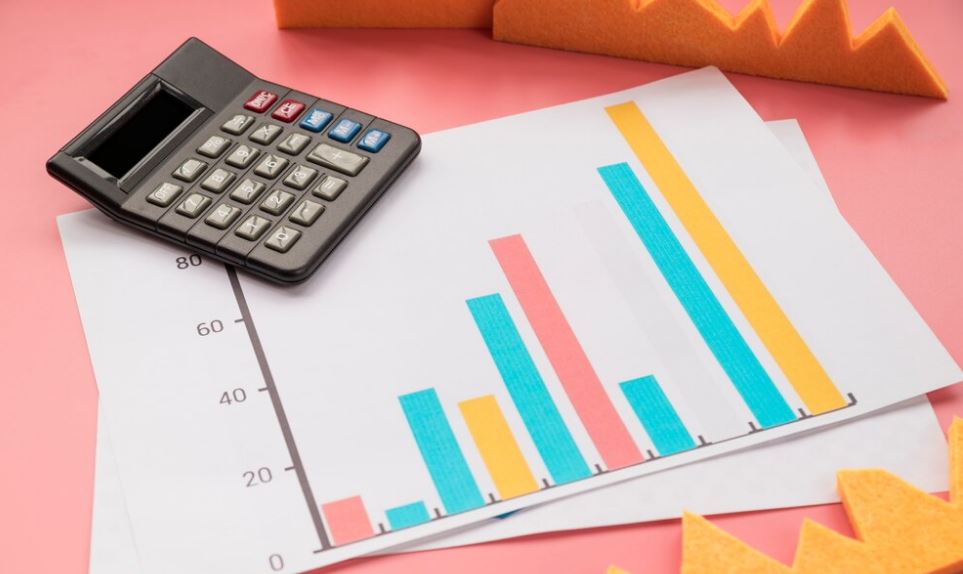Economic uncertainty cast a long shadow over the UK when it rang in 2025. Rather than a new economic perspective, Britons experienced a discernible decline in morale. The overall index fell five points in January to -22, the lowest level since December 2023, according to GfK’s long-running Consumer Confidence Barometer. With all five key metrics showing a downward trend, the decline was remarkably consistent, highlighting a sense of caution rather than collapse.
If spending is the economy’s heartbeat, sentiment is the rhythm that keeps it going. This is why consumer confidence is frequently compared to the emotional pulse of the economy. That rhythm slowed noticeably in January. Though they weren’t in a panic, people were cutting back, especially on economic expectations, forward planning, and discretionary purchases. An intriguing subplot, however, arose within that larger story of worry: a sharp increase in savings. Although consumers may have lost some confidence, they haven’t lost their resolve, as evidenced by the Savings Index’s nine-point increase to +30.

The Change in Attitude: What’s Causing the January Decline?
Domestic anxiety was not wholly unanticipated given the flat GDP growth through late 2024. UK households now have a cautious mindset as a result of stagnating wages, pressures from the cost of living, and persistent inflation. In response, consumers are cutting back on spending and refocusing on financial resilience, especially those in the middle income range.
The change was highlighted by Neil Bellamy, Director of Consumer Insights at GfK-NIQ, who said, “Consumers don’t believe things are changing for the better.” His observation expresses more than just sentiment; it also reflects a pervasive worry about the UK’s economic future, particularly among those who have experienced post-pandemic disruptions and austerity. An emotional indication that uncertainty is persisting longer than many had expected is the startling eight-point decline in expectations for the economy in the upcoming year.
If people are so worried, why are they saving more?
At first look, the Savings Index’s dramatic increase to +30 might appear contradictory. However, it’s actually a common psychological reaction. People prepare for instability by hoarding resources, postponing expensive purchases, and postponing lifestyle adjustments. In this instance, increasing one’s savings is both a strategy and a shield. It’s a very obvious sign that people are getting ready rather than freaking out.
UK Consumer Confidence Metrics – January 2025
| Confidence Indicator | Score (Jan 2025) | Change from Dec 2024 | Compared to Jan 2024 |
|---|---|---|---|
| Overall Consumer Confidence Index | -22 | ↓ 5 points | Equal to Jan 2024 |
| Personal Finances (Past 12 Months) | -10 | ↓ 3 points | ↑ 2 points from Jan 2024 |
| Personal Finances (Next 12 Months) | -2 | ↓ 3 points | ↓ 2 points from Jan 2024 |
| General Economy (Past 12 Months) | -46 | ↓ 7 points | ↓ 5 points from Jan 2024 |
| General Economy (Next 12 Months) | -34 | ↓ 8 points | ↓ 13 points from Jan 2024 |
| Major Purchase Index | -20 | ↓ 4 points | Equal to Jan 2024 |
| Savings Index (not in Overall Score) | +30 | ↑ 9 points | ↑ 3 points from Jan 2024 |
Additionally, it reflects economic behavior that is similar to that of earlier downturns. Similar to the European debt crisis and public sector cuts in 2012, UK households increased their savings despite a decline in confidence. As usual, history rhymes. However, the current change is taking place in a society that is more data-savvy and digitally savvy, allowing consumers to monitor, modify, and adapt their financial decisions more quickly than in the past.
Is This Dip a Sign of Something Deeper or Just Temporary?
Although January’s decline is not unprecedented, the more general question is whether it represents a structural change or a seasonal blunder. The outlook for February appears to have significantly improved, with consumer sentiment increasing by 1.4 points and property market optimism increasing, according to recent YouGov and Cebr data. This recovery shows a very successful reaction to early fiscal cues, including stabilizing fuel prices and expected changes in Bank of England policy.
The upcoming quarter will be crucial in terms of policy. The economic oxygen required to boost spending without accelerating inflation could be supplied by policymakers through interest rate reductions or targeted tax breaks. Similar to this, companies, particularly those in the retail, housing, and travel sectors, can take proactive measures by providing flexible terms, loyalty-based rewards, or risk-sharing purchase options to entice reluctant customers to come back.
Zooming Out: Customer Attitude in a Changing Environment
The public’s quiet adaptability, rather than the decline in confidence, is what most stands out. Britons are subtly adjusting their index scores while media headlines focus on them. Consumers are exhibiting a wide range of behaviors, from changing their shopping habits to adopting financial tech tools, which could eventually lead to more sustainable spending and saving patterns.
Businesses and employers, however, can learn from this attitude. Understanding that today’s consumers are looking for security rather than just deals may lead to new opportunities in service and product design. The best-positioned brands to spearhead the recovery are those that clearly and compassionately tap into consumer needs, whether through AI-powered financial planning apps or incredibly effective buy-now-pay-later schemes.
Concluding Remark: January’s Decline as a Signal for More Astute Development
The decline in confidence in January might seem like a setback, but it might also be a period of clarification before advancement. It serves as a reminder that confidence is based on trust, predictability, and forward-thinking, not just numbers. The UK has a chance to turn financial hesitancy into economic momentum as 2025 draws to a close. Not only will policies be necessary for that change, but people will also need to think critically, spend sensibly, and save with a purpose.
